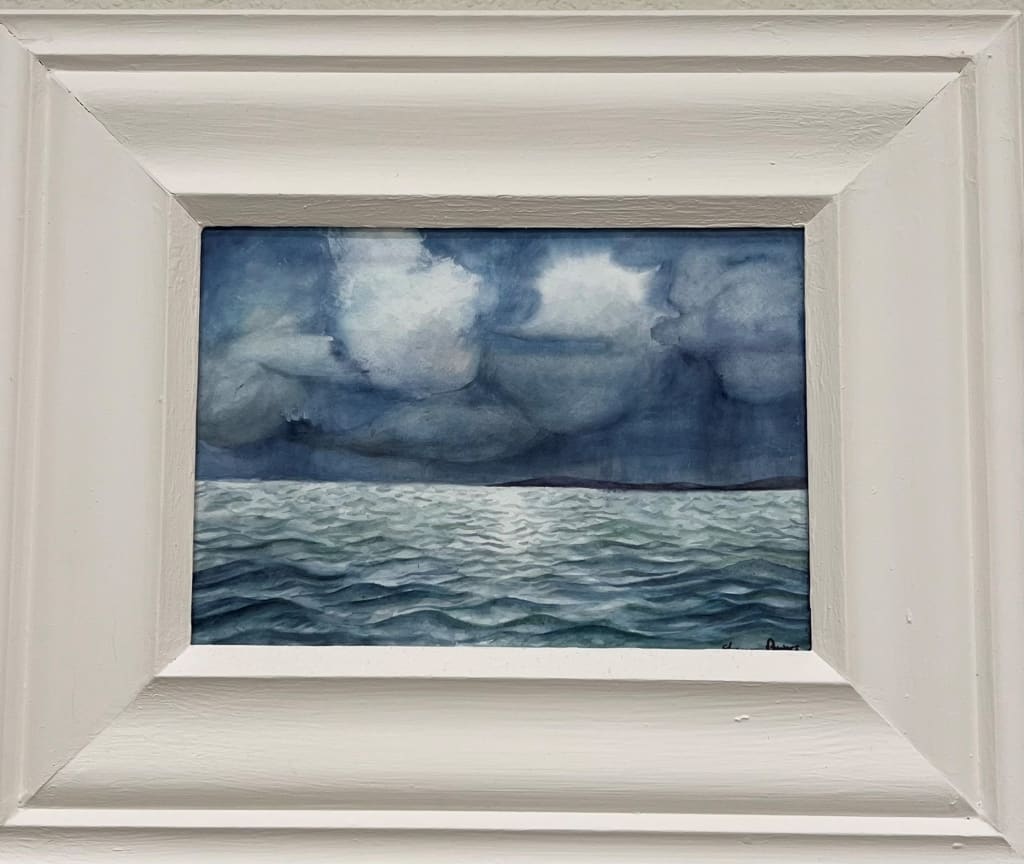New Year, New Career
Leaving a career in a helping profession

Transitioning Out of a Helping Profession
I’m on a Facebook group for speech therapists who want to leave the field. Many feel overworked, underpaid, or feel that the profession just isn’t a match for who they are. But it’s not so easy to leave. We’re wearing the shiny, copper handcuffs. They’re definitely not golden as I’ve never been able to afford an Audi from this profession. But, this career has offers just enough financial comfort to discourage starting something new. Part of the problem I’ve noticed when talking with other speech therapists or reading their stories is that we don’t know what else we could do. And, I think that may have something to do with the role models we’ve seen growing up.
Speech therapy is a female dominated field. Over 90% of speech therapists are women. That’s even higher than the 80% that make up the nursing profession. Any career that is primarily a caregiving career, or a helping profession, attracts more women than men. When choosing a career, I felt I should do something that helped others rather than something that I enjoyed, that kindled my curiosity. And, to be very blunt, I have often found myself bored or fighting distraction while doing speech therapy. I first noticed my struggles with concentrating, yawns escaping left and right, when I was fulfilling my observation hours in my undergraduate program. But I pressed forward and applied to graduate school anyway. I convinced myself that when I was the speech therapist, it would be different because I’d feel more invested. But, stepping into the therapist's shoes only felt worse. I didn’t have attention to detail. I spaced out when I should have been closely observing vowel and consonant productions by tiny humans. I longed for my days studying English and Portuguese literature, diving into the deepest analysis of Virginia Wolfe or Fernando Pessoa. But, teaching about literature and learning languages wasn't ever modeled to me as a real profession, as an acceptable profession. So, I looked around me to see what other women were doing. I felt I should choose what was familiar to me.
And that’s the problem I find right there, for those who want out of speech therapy- or any profession. The feeling that we should follow the professional path laid before us even if that path feels as comfortable as walking barefoot on cobblestone. The problem is when we stifle that little voice that says, follow your interests. Try something different. Look into this instead! We tell that little voice to put a lid on and follow expectation and tradition instead. And for women, that precedent is mostly a limited amount of choices in caretaking professions.
But, just because women have had limited options in the past, doesn’t mean all women must do caretaking professions now. Or, as is my case, feel we should want to do this. There are those of us who go into this field of work with the belief, usually unconscious, that if work is at times costing you a bit of your sanity and chipping away at your health, then you’re doing something right. Then that means that you’re helping someone.
Not that these career choices are wrong for everyone. They’re noble career choices, and very needed. But, I think we need to listen to ourselves first when it comes to choosing a career rather than tune in to societies expectations. What if we know we’ve found the right job because it brings us purpose and intrigues us? What if the talents we have, the things that bring us some joy, will in turn make others joyful as well?
Let me give you an example:
One of my friends, also a fellow speech therapist, is an amazing painter. She is gifted and yes, she has also practiced honing her skill to create spectacular paintings. A few years ago, I was going through a very difficult time in my life. I suffered multiple pregnancy losses. The heartache from each one was more profound than the last, and I was either being eaten away by pain after a loss or experiencing suffocating anxiety with each new pregnancy. A cloud of suffering was my companion for nearly four years. I finally got a medical diagnosis and with that the reassurance that the next pregnancy might make it. My husband and I had moved into a new home, and I wanted to add something beautiful to the walls of our room. I saw a painting my friend Shannon had made, of the ocean and clouded sky after a storm and the sun was breaking through. I wanted that painting. And so I bought it and hung it on the wall of our bedroom. I would look at it and say, "that is my life. The storm has broken and the sun is shining through. Everything is okay now." That painting became a symbol of hope, of calm after the storm, and even now, almost one year after my babies were born, that painting hanging on my bedroom wall reminds me of the peace after the upheaval. Now, isn’t that creation helping people? It made me feel hopeful when I needed it. And Shannon loves to paint. We both benefited from her creation. Her work brings other people joy and comfort. So when I hear someone say that they want to do a profession that helps other people, while also dismissing the talents they have that can help other people, I admit I feel puzzled at this employment enigma we get caught in.
And here I am, trying to solve my own puzzle. As a child, I followed all of my interests and talents and was unafraid to show off what I was creating. Even before middle school, I had started a number of businesses. I used to host playground shows in my backyard that included a peanut butter cookie, chocolate milk, and a breathtaking monkey bar performance by yours truly. I must have charged a few quarters to attend. I created a flower stand and sold flowers from my parents garden- some my have been weeds. I started a dance school with a friend when I was only thirteen. I followed my interests but as I got older, I think I got shyer and more self-conscious. And growing up in Utah, women were doing one of two things: getting ready to be wives and mothers with perhaps an associate degree in education at a junior college, or getting a degree in something related to caretaking: nurse, teacher, special educator or speech therapist. I saw men follow the career paths deemed appropriate for the male gender. Those career paths were much wider and varied. But, what I didn’t see was anyone being encouraged to ask themselves what excited them, what interested them? What were they curious about?
I read once that the key to being satisfied with your livelihood, whether you’re an entrepreneurial artist or an employee, is to find the skills that you have, combine those with what you actually enjoy doing, and see how those can service others needs. If we leave out the ingredient of enjoyment, if we leave out what sparks our interest, then we may be in danger of quitting one occupation and repeating the same cycle but with a different career title. It’s important to look at our gifts, our talents, and our interests and understand that by nurturing our curiosities and interests, we are helping other people without sacrificing ourselves. I think we can reframe helping others to mean we are sharing our true selves and the gifts we’ve been given. This isn’t selfish- it only makes sense that by choosing to live in a way that doesn’t deplete us, we can give even more.
About the Creator
Rebecca Green
I'm a recovering creative returning to myself. I veered off the creative path two decades ago. But, I'm now reviving my inner artist and helping others to do the same. I hold retreats for women and read Portuguese poetry.
Enjoyed the story? Support the Creator.
Subscribe for free to receive all their stories in your feed. You could also pledge your support or give them a one-off tip, letting them know you appreciate their work.






Comments
There are no comments for this story
Be the first to respond and start the conversation.